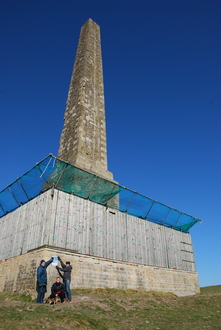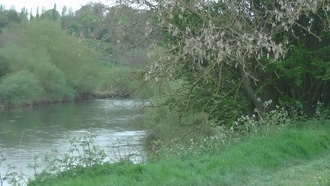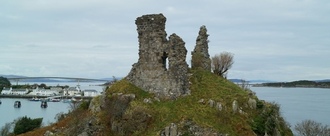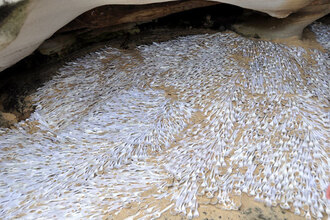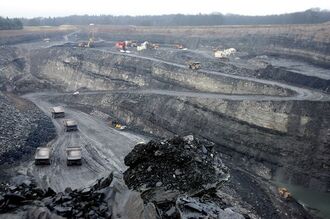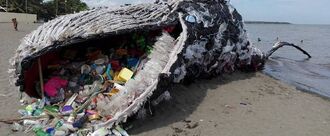-
Save Old Haymarket, LiverpoolThe pollution and noise from a rotating stock of 12 busses would dramatically reduce the quality of life of people that live and work around Old Haymarket, an oasis in the centre of Liverpool. The car park currently averages over £100,000 a year in takings and we as a city blighted by Government cuts cannot afford that. Two mature trees would be removed. LCC claims that more new trees will be planted but they have a proven track record of not fulfilling similar promises. Old Haymarket/Manchester St used to be derelict and dangerous - it is now a thriving community because residents and businesses moved there. This oasis in the city will be destroyed. Eight businesses, including a hotel, and hundreds of residents will now be expected to share a loading space for two vehicles. People will lose their jobs and property prices will be affected. The car park is part of the curtilage of a Grade II listed building, the fantastic Queensway Tunnel entrance. Not appropriate for vehicles weighing up to 80,000 kilograms (176,370 lb) to be driving around and polluting and certainly not in keeping with the surroundings of the structure or that of the UNESCO World Heritage Site it sits in.507 of 600 SignaturesCreated by Old Haymarket
-
Lansdowne Monument - make a fussThe Lansdowne Monument has stood tall and proud on the skyline overlooking Cherhill since 1845 and is a Grade II* listed monument. Now designated a monument at risk. For the last EIGHT years it has been hidden under scaffolding. The monument is in the ‘care’ of the National Trust, who agreed to conduct a condition survey in February 2018. Although the National Trust agreed to the survey they have stated that they do not have the funds to restore the monument without Fund Matching. (Estimated cost of repair is £1.2 to £1.5 million). Yet within the past eight years no fund matching has commenced. The National Trust do not support independent fund raising. We have tried to engage with the National Trust for the past two years, and have offered to assist in raising funds, but they have ignored us. Unless we start making a fuss, our monument will not be restored. It is not a priority to the National Trust as it is not an income generator. But we must make it a priority for us to ensure that the monument is restored to its former glory! It is an iconic feature of our landscape and part of our heritage. The monument celebrates it's 175th birthday in 2020 and we want our monument restored by this date.3,029 of 4,000 SignaturesCreated by Debra Bassett
-
Scrap the Western Relief Road/Hereford BypassThis is the follow on from the Southern Link Road, which was always a stealth precursor to the bypass plans. We will be updating this with more info in the coming days, meanwhile tell all your friends and relatives to get on board with this new campaign specially if your property is affected. Highways England have said "under current guidance the building of new road infrastructure could only be justified in policy terms when other avenues such as travel planning and sustainable travel modes had been developed and shown not to address the transport needs and issues identified" (2014). Following public consultation in 2017, Herefordshire Council acknowledged that "improving pedestrian and cycling routes were a priority" for respondents, and that "more reliable and quicker bus journeys were among the top five improvements that should be made a priority in Hereford". One may legitimately ask why they are not acting on this feedback. They obviously have a different agenda that doesn't fit with the electorate's views. We have been aware of the presence of way too many traffic light controls which rather than facilitating smooth transit around the city, are badly timed to seemingly snarl the city traffic on a daily basis ... 18 sets of lights on one junction being the perfect illustration of our point, and if you're a pedestrian you need to be amazingly nimble ... not a city for the weak and slow. We also doubt there is anyone out there who believes this next item was a right way to behave ... Apologies don't cut it when people's homes and lives are at stake. PEOPLE living on the proposed routes of Hereford’s new bypass were not given notice that their houses could be demolished. Many of the residents living on Kings Acre Road only discovered their homes were in the firing line of the western bypass when they saw reports in the Hereford Times or were told by neighbours. http://www.herefordtimes.com/news/15998820.Hereford_residents_left_in_the_dark_about_proposed_bypass_through_their_street/1,833 of 2,000 SignaturesCreated by John Perkins
-
Urgent Conservation of CASTLE MOIL (CAISTEAL MAOL)A bolt of lightning has destroyed part of Castle Moil on the Isle of Skye. The ruin was seriously damaged during a storm on Wednesday. First of all, preservation and restoration plays a cultural role. Old buildings teach us about the history that happened before we were born and promotes the respect for those who lived in different times and different societies. Architectural monuments cultivates pride of our past and heritage . Secondly, economy is an important merit of keeping the old. Architectural monuments are great at attracting tourists. Everyone likes to experience the “spirit” of the place, which most often is represented through architecture. Tourists can provide locals with jobs and extra income. Restoring locally important historical structures generates workplaces for both local people and international experts This Castle ruin dates back to the tenth century .it is of great historical importance to the people of The Isle of Skye. Skye was enhanced by gifts of territory from a grateful Robert I after his victory at the Battle of Bannockburn (1314). They rebuilt the castle sometime between 1490-1513 and it is these ruins that are visible today.513 of 600 SignaturesCreated by Peter Matheson

-
Stop plastic forks in schools!This will help reduce the ever growing amount of plastic clogging up our planet. Think; there is over a 1000 students in my school. If we all use a plastic fork every day for a week that is 5000 plastic forks, then 20,000 a month, and in a school year that is an unimaginable amount of plastic .Think. Then imagine this all over the country. This is an unnecessary amount of plastic doomed to be lunch for an innocent sea creature. We have to stop this now and #STOPthePlasticTide because the health of the planet starts with us - the human race.283 of 300 SignaturesCreated by Katie Parker
-
No new opencast coal mines in Durham, UK.No new opencast coal mines have started in England since 2013. Since then the Government has said that it will phase-out coal by 2025. It's vital that we prevent a new mine starting which would cause local and international environmental destruction and which the local community have clearly rejected. Bradley is a greenfield site in County Durham between the villages of Dipton and Leadgate. The site supports a wealth of plants and animals, including Great Crested Newts, badgers, red kites. Banks Group plan to mine 550,000 tonnes of coal from the site, starting work this spring. The Bradley opencast mine is a case where the original decision to grant planning was grossly wrong and the development is likely to damage the wider public interest. Since the planning permission was granted in June 2015 there have been significant changes in national and international policy with regards to coal and climate change. 1) Coal use in the UK has dropped to 7% of the UK’s energy mix compared with 30% in 2014. 2) The government has said it will phase-out coal by 2025. 3) The UK and Canadian governments want to be world leaders with their Powering Past Coal Alliance. 4) The Paris Agreement requires that action is taken to prevent global temperatures from raising by 2 degrees and pursue efforts to keep them from a 1.5 degree raise. Thomas Davison, 28-year-old a resident living 300 metres away from the proposed opencast site said; “Banks' desire to extract 550,000 tonnes of coal is driven by nothing more than profit and not at all by a genuine need for energy. We have moved onto other forms of cleaner energy for the good of our global climate. So why is it worth harming the local wildlife and the local economy for one last money grab?”90,838 of 100,000 SignaturesCreated by Coal Action Network

-
SAVE OUR GREENBELTThe Council intend to change the green belt to brown belt in a small quaint rural village at Broomhill in Barnsley. We want to stop the application to build on our green belt. The effect this will have on our village and the abundance of wild life will be catastrophic. Both residents and visitors alike enjoy the countryside that surrounds us from dog walkers, bird watchers to ramblers. Our wild life play a big part in making our village an attraction to all. The influx of traffic and housing would be devastating. We have an abundance of squirrels, rabbits, foxes, owls and bats to name a few not to mention an extremely large variety of birds. The surrounding wetlands attracts, swans, geese, ducks, coots and a variety of other wild life. To build on our green belt would be devastating to the wild life not to mention the residents who have enjoyed the peace and tranquillity of living in the countryside.339 of 400 SignaturesCreated by Sharon Baker
-
BIG BUSINESS, SAVE OUR CLIMATE!Big businesses need to take responsibility, and stop harming our climate. Throughout the world more and more wildfires, heatwaves, and floods show that we must take urgent action to achieve a safe and healthy climate. HSBC Unlike some other banks, HSBC invests much less in solar or wind energy, which are now good value. You can switch to a less harmful bank. RWE (Npower) Energy generator and supplier Npower is mostly owned by the huge multination RWE, which uses an awful lot of coal. You can switch to another company which uses clean energy. Danone Danone’s brands – including Evian and Volvic – sell bottles made of unrecycled plastic. Once they shape up and commit to making these changes, we'll target other irresponsible companies – and you can suggest some. By signing and sharing this petition you’re telling businesses they must stop harming our climate NOW. Find out more about CLIMATE SERIOUS and how you can get involved: www.climateserious.org #climateserious2,819 of 3,000 SignaturesCreated by 7 Friends of the Earth local groups and UK Youth Climate Coalition

-
Save Boston Spa SchoolWe need answers from all parties involved. The school is a big part of our community.577 of 600 SignaturesCreated by Claire Wiggins
-
Say NO to building on or near to Flood Plains!!!! In Hale Village & HalebankAs everyone knows if flood plains are built on the water has to divert somewhere else usually with catastrophic results !!! We have seen this over the years where villages have been washed away, animals drowned and homes have been destroyed with flooding !! The Government have told all councils they must provide more homes and totally disregard the dangers and destruction of building on or near flood Plains! This is happening now in Hale Village and Halebank . The Government and Environmental Agency are NOT acknowledging flood plains in our area even though they actually flood!!! We must all fight this immediately before it happens in other areas !!! Please sign the petition telling the Government they can't do this !!!319 of 400 SignaturesCreated by Ann Blundell
-
Time to Clean up Scotland's Salmon Farming IndustryMany jobs and much of Scotland's iconic wildlife depend on the health of our coastal environment. But Fergus Ewing, Cabinet Secretary for the Rural Economy & Connectivity (REC) is determined to expand Scotland’s production of farmed salmon by 2030. This would be an act of sheer recklessness given the grave concerns surrounding the industry as it is practised today. The REC committee will hold an inquiry into salmon farming in Scotland later this year. It is vital that we make our voices heard and let our MSPs know that there can be no expansion of salmon farming without radical reform. Here are the issues at stake: • Scotland's seas are home to incredible wildlife, including wild salmon, sea trout, porpoises, dolphins, whales and seals and are home to a wealth of life on the seabed which is vital to our valuable crab, prawn and lobster fisheries. They are under acute threat because of the harmful impacts of open net salmon farming. • A truly sustainable coastal economy can regenerate around many uses of restored seas and fisheries. Jobs are precious in rural areas. By allowing one industry to pollute the sea, we threaten jobs that use the sea sustainably, such as well-managed fisheries and wildlife tourism. By protecting them, the coastal economy can thrive long term. • Parasitic sea lice, thriving in overcrowded open net salmon pens, are driving wild salmon and sea trout numbers to dangerously low levels. • Toxic chemicals to treat sea lice now exceed safe levels in at least 45 Scottish sea lochs, and studies implicate them in harm to crustaceans and other forms of marine life far from the farm cages. • Some 130 salmon farms on Scotland's west coast use Acoustic Deterrent Devices (ADDs) to scare away seals with loud underwater noises. If the ADDs don’t work, fish farmers are permitted to simply shoot them.These ADDs also affect porpoises, dolphins and whales, even though it is illegal to disturb them. • Now the industry, with the government's support, wants to double its annual production to around 300,000 tonnes of salmon by 2030. The environmental impacts are already dangerous, so if you care about the health of our marine environment, please act now! Tell the Scottish Government that salmon farmers must clean up their act before they are allowed to expand. The Salmon Aquaculture Reform Network Scotland (SARNS) is a growing coalition of community, coastal and environmental groups and concerned individuals from all over the west coast and islands of Scotland. We are campaigning for immediate reform of the salmon farming industry. Find out more here: https://salmonaquaculturescotland.wordpress.com/clean-up-scotlands-unsustainable-fish-farming-industry/ Thank you!3,970 of 4,000 SignaturesCreated by SARNS Salmon Aquaculture Reform Network Scotland
-
UK supermarkets - cut down on plastic packaging.It is now well recognised that single use plastic has become a major threat to global ecosystems especially in the sea. Many of us have been shocked to see films and photographs showing the impact on marine life but also frustrated and helpless when we go shopping to find it impossible to avoid plastic packaging. We are pleased to see that the government is finally talking about reducing plastic but we need action now! Supermarkets are the single biggest source of plastic litter in this country and could move quickly to eliminate huge amounts of it. We therefore call on all supermarket chains to take steps to eliminate this environmental scourge.333 of 400 SignaturesCreated by Jill Coleman
Hello! We use cookies to improve your experience by providing insights into how the site is being used. Find out more.
.jpg)
